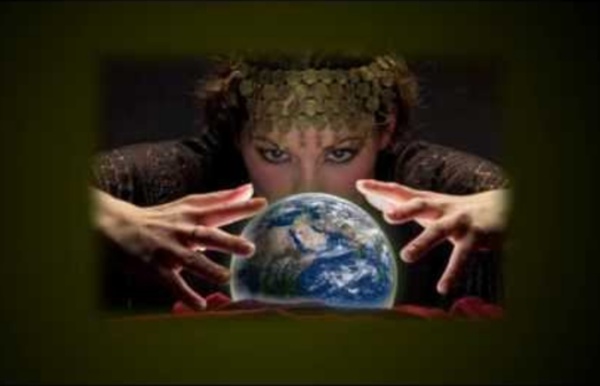



The Economist Events Présentation de la monnaie locale » Montreuil en Transition Le site dédié à la monnaie locale est ouvert : Mais tout est parti d’ici : Bienvenue sur la page monnaie locale ! Si ce projet vous intéresse, vous pouvez participer aux 2 concours : pour le nom de la monnaie : cliquez ici pour en savoir +pour le graphisme des billets : cliquez ici pour en savoir + Enfin, vous trouverez ci-dessous toutes les réponses à vos questions : Si vous n’avez pas trouvé votre réponse ==> posez votre question dans les commentaires A quoi ça sert ? La monnaie locale est une solution locale pour répondre au désordre global : crise économique, crise écologique, crise politique. La monnaie locale est un outil de transformation sociétale, qui permet : d’encourager l’économie réelle et localede réduire notre empreinte écologiquede combattre la spéculation et les paradis fiscaux Ce graphisme montre les circuits monétaires, sans puis avec monnaie locale : Pour en savoir plus : [retour en haut] Comment ça marche ? Comment l’utiliser ? Où l’utiliser ? Oui !
Author I will give you some of my background, although the intense transitions of the last few years have left me feeling like a new person. I was born in 1967 and was a very sensitive, intellectual and dreamy child. I was always consumed by questions like, "Where did I come from?" "Why am I here?" "Where am I going?" I didn't know what I was searching for, but I knew that none of the usual options life presents a Yale graduate attracted me. In my late 20s I entered what was to be a long period of intensifying crisis. The next five years were much like a birthing process. In addition to writing books and essays, I have been doing more and more public speaking, both at conference and smaller events. I am now remarried and still living in Harrisburg, PA with my three children, two of whom are now teenagers. My most recent books is Sacred Economics: Money, Gift, and Society in the Age of Transition.
Monnaies en débat Les médias et l’économie Panorama de l’offre d’information économique et sociale Si les décideurs peuvent accéder à une information d’assez bonne qualité, adaptée à leurs besoins et orientée en fonction de leur position sociale, le grand public, les citoyens n’accèdent, en matière économique et sociale, qu’à une information insuffisante, souvent technique, et non critique. Presse quotidienne économique et financière de qualité destinée aux professionnels (Les Echos, La Tribune). Elle propose une information pertinente pour les chefs d’entreprise, cadres supérieurs des milieux bancaires et financiers, mais aussi tous les décideurs politiques et syndicaux. L’info y est factuelle, souvent bien informée, et même si son ton et ses préoccupations sont celles des dominants, une des conditions de perpétuation de leur pouvoir est précisément d’être mieux informé que les autres… Son lectorat est en développement, grâce notamment à cette qualité, et prend des parts de marché aux quotidiens généralistes. Radios Télé Conclusion
11/04 – Courts-métrages « 10 monnaies locales en 60 minutes » » Montreuil en Transition Une monnaie locale est en train de naître à Montreuil, et vous pouvez aujourd’hui participer ! Le collectif « Monnaie Locale » de Montreuil en Transition organise la projection de « 10 monnaies en 60 minutes » : un condensé de reportages, de vidéos et d’exemples de monnaies locales en France et en Europe. Quand : jeudi 11 avril – 19h00 à 21h00 Où : CASA Poblano, 15 rue Lavoisier, Montreuil, M° Robespierre ==> Réservez-vos places en avance ==> Participez au financement La projection sera suivi d’une discussion sur les avantages d’une monnaie locale et de comment la créer concrètement dès cet été . En plus de la projection, vous pouvez participer à la monnaie locale grâce à 2 concours : Cette entrée a été publiée dans Monnaie locale , Tous Acteurs !
Une monnaie locale et complémentaire.....c’est quoi ? On en entend régulièrement parler, mais que se cache-t-il derrière cette formule générique ? Sont-elles des concurrentes de l’euro ? Dans quel but circulent-elles ? Quel intérêt revêtent-elles ? La Tribune vous propose un point pratique sur ces monnaies complémentaires qui incarnent les valeurs de tout un pan de l’économie sociale et solidaire. Quel est le principe ? Créer une monnaie pour une zone géographique limitée, qui fonctionne en complément de la monnaie nationale, pour défendre des principes liés à l’économie sociale et solidaire. Le concept de monnaie fondante vient d’un économiste du début du XXème siècle, Silvio Gesell, et a été appliqué pour la première fois à la monnaie locale de Wörgl (en Autriche) pendant la Grande Dépression des années 1930. Quel est l’intérêt d’un tel projet ? Outre dynamiser l’économie locale, les différents projets comportent souvent des spécificités, et ont ainsi des intérêts complémentaires divers. Quel impact sur l’économie à l’échelle d’un pays ?